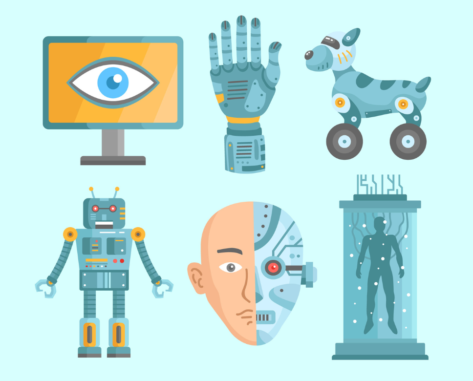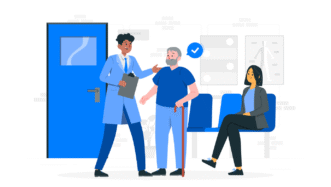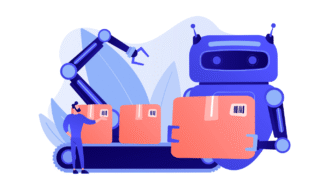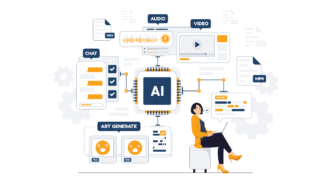LESSON OVERVIEW
In this lesson about science fiction, students watch a video about predicting advances in science and technology, talk about sci-fi and learn some vocabulary related to future predictions.
C2 / Proficiency60 minFlipped LessonUnlimited Plan
This is a Flipped Classroom lesson plan. In a nutshell, it means that the first part of the lesson needs to be done by students at home. Learn more about flipped classroom and how we implement it in these lesson plans in our post.
LESSON OVERVIEW
In the pre-class part of this lesson about science fiction, students do two vocabulary tasks. First, they read six statements and find the defined words and phrases (e.g. circumspection, worst-case scenario). In the second task, students complete gaps with correct forms of words in brackets (e.g. foresee – unforeseen, alarm – alarmist). The vocabulary from this part is later used in the lesson.
IN-CLASS ACTIVITIES
Vocabulary revision
In the in-class part of this lesson about science fiction, students look at five common sci-fi themes and give examples of books or films with them. They also discuss which of the themes they enjoy watching or reading about most. Then, students complete gaps in six sentences with one word each. The first letters are provided. Students studied the words (or phrases) in the pre-class part of the lesson. After that, students discuss whether the opinions expressed in the sentences are alarmist or a sign of circumspection.
Video & discussion
Before watching the video, students look at some clues as to who futurists are and complete the gaps. Then, they watch the first part of the video and check their answers. Before watching the second part of the video, students discuss three questions. They watch the second part and compare it with the ideas they discussed. Then, students spend some time discussing the ideas from the video. They talk about what being a futurist and predicting the future entails. Next, students look at some ideas from sci-fi films and series, and try to think of examples. They also explain the concepts from the films in detail.
Speaking & homework
In the last part of this lesson about science fiction, students look at several future predictions from the lesson and decide how likely they are to come true by assigning each of them into one of three categories. The teacher can also decide to ask students additional questions listed in the teacher’s version of the worksheet. The worksheet also contains a task which can be used as homework or revision. Students look at four topics and talk (or write) about them using words and phrases from the lesson.
Subscribe to unlock these and many other Standalone lesson lesson plans with the Unlimited planWORKSHEETS












This is such an amazingly fun lesson! Thank you:)
That’s great to hear. Thanks, Amanda 🙂
Sorry to send a negative comment because I absolutely LOVE all ESL brains lessons and so do my students. However, we found this lesson to be very heavy and very depressing. It was very disturbing. Not enjoyable at all.
Thanks for the comment! We’re not sure what you mean when you say that the lesson was very depressing and heavy, but we’d like to hear more about it. Would you be so kind and send us an email at [email protected] with some details?
I will do, not a problem. But for example asking if a student if concerned about wars heading to our planet from other galaxies etc and the negatives to AI etc. There was no positive side or balance.
Thanks for the answer. I suppose you are talking about task 4? The examples are extreme on purpose because then in task 5 students are supposed to assess to what extent they are alarmist. Also, science fiction stories are usually about the apocalypse, aliens, interstellar wars, etc., so I think it would be hard to avoid these topics in a lesson about the genre.